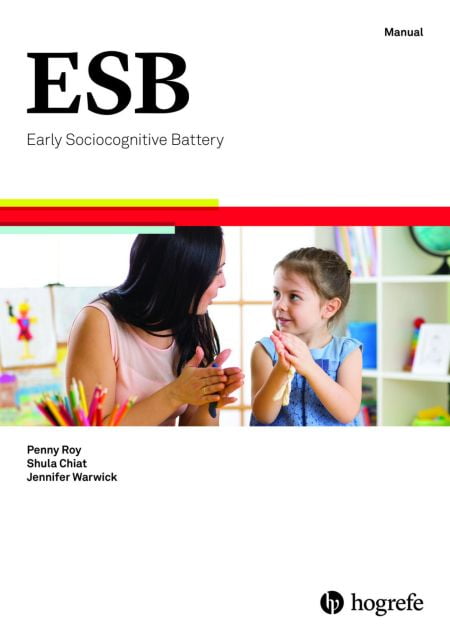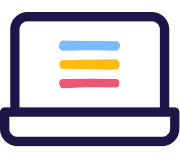
Early Sociocognitive Battery esb
For: Preschool children that is predictive of later language and social communication difficulties including autism spectrum disorder (ASD)
Admin time: 15 minutes or less
Form: Paper and Pencil
Authors: Penny Roy, Shula Chiat, Jennifer Warwick
Online Training in the use of the Early Sociocognitive Battery with the University of London now available. Please click here for dates and more information!
Printed Kits
Click to browse products
Early Sociocognitive Battery Kit
Overview
The Early Sociocognitive Battery (ESB) is a new, innovative assessment for preschool children that is predictive of later language and social communication difficulties including autism spectrum disorder (ASD).
The ESB can be used by speech and language therapists, clinical and educational psychologists, and paediatricians. It is also available for use by early years’ professionals who have:
Certified training and experience in a relevant discipline.
Membership of a professional organisation appropriate to the focus of the test.
Evidence of competence in the use of psychological tests.
Completion of the face-to-face or online ESB training programme is highly recommended for all ESB users. In addition to providing clinical case studies and the evidence base for the ESB, these programmes offer support and feedback on the administration, scoring and interpretation of results.
For more detailed information please download Manual extract
[vfb id=6]
Product Description
The ESB a primarily non-verbal clinical assessment tool suitable for use with children aged 2-5 years and from diverse language backgrounds. It is a battery of three subtests assessing sociocognitive skills known to be associated with language development and impaired in children with social communication difficulties and ASD. The subtests measure social responsiveness, joint attention and symbolic comprehension to identify deficits in key sociocognitive skills and help early years professionals target their intervention strategies appropriately.
The ESB builds on and supports clinical observations by providing a theoretically-driven, evidence-based measure that is:
Systematic: evaluating a representative range of sociocognitive responses elicited through carefully selected and well-specified activities.
Standardised: enabling comparison of a child’s responses with those typical for their age based on a representative sample of over 400 preschool children.
Informative: revealing children’s skills and needs according to evidence of relations between performance on the ESB and their development of language and social communication.
Psychometrically robust: shown to be reliable and valid.
Administration
The ESB is a portable assessment in an easy-to-carry case containing more than 60 toys and objects designed to engage young children.
The assessment is quick, taking 15 minutes or less to complete, and comprises three subtests outlined below:
Social Responsiveness: the assessor acts out a sequence of scenarios in which they express six feelings, such as hurt and surprise, and children are scored for looks to the assessor’s face.
Joint Attention: the child is shown a set of six plastic eggs and opens these to reveal an object inside each; the assessor then looks and/or points at the corresponding object placed in the room earlier. The child is scored for alternating gaze between the assessor and object and for following the assessor’s gaze or pointing gesture.
Symbolic Comprehension: the assessor presents the child with six gestures, then six miniature objects and six uses of pretend objects, and asks the child to choose one out of six objects that match (is best for) each demonstrated gesture, miniature or pretend object. The child is scored on correct matches.
The video below shows how speech and language therapists work with children on some of the tasks included in these three subtests.



